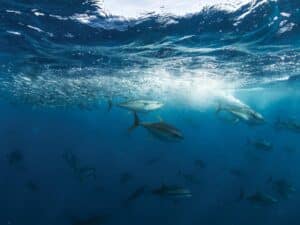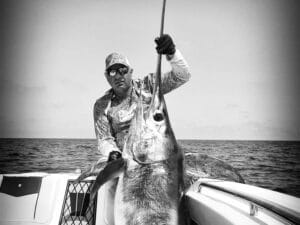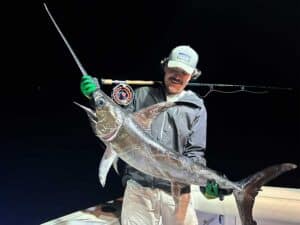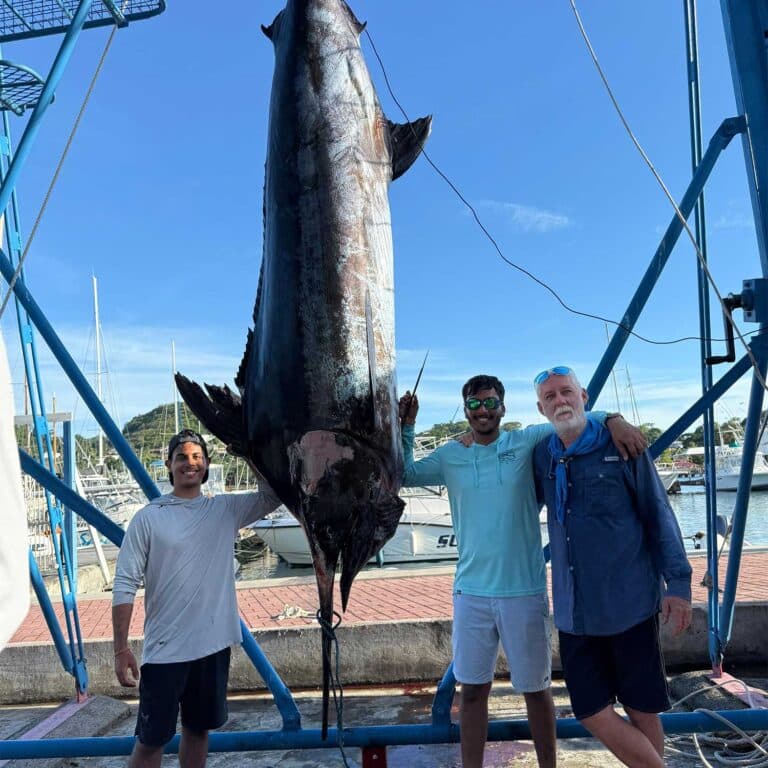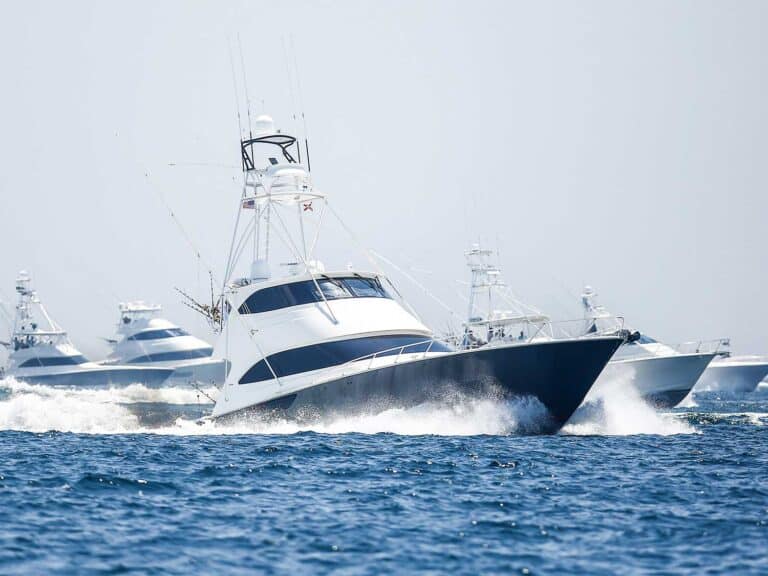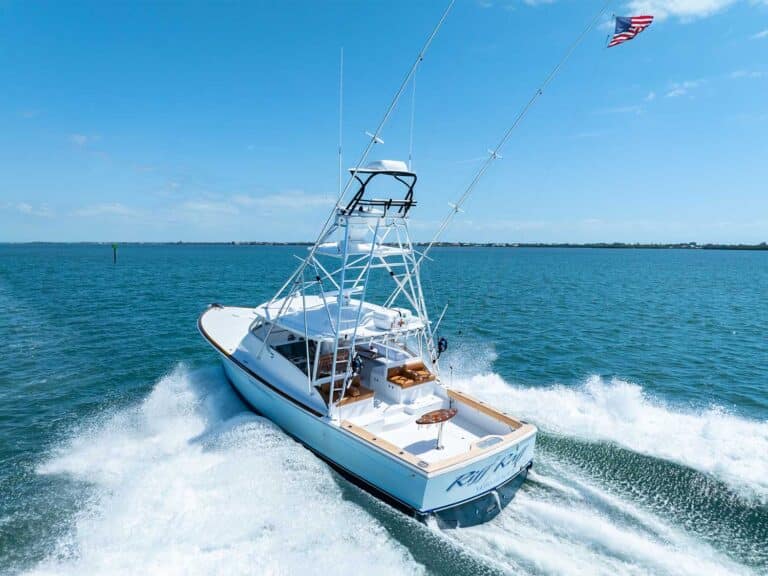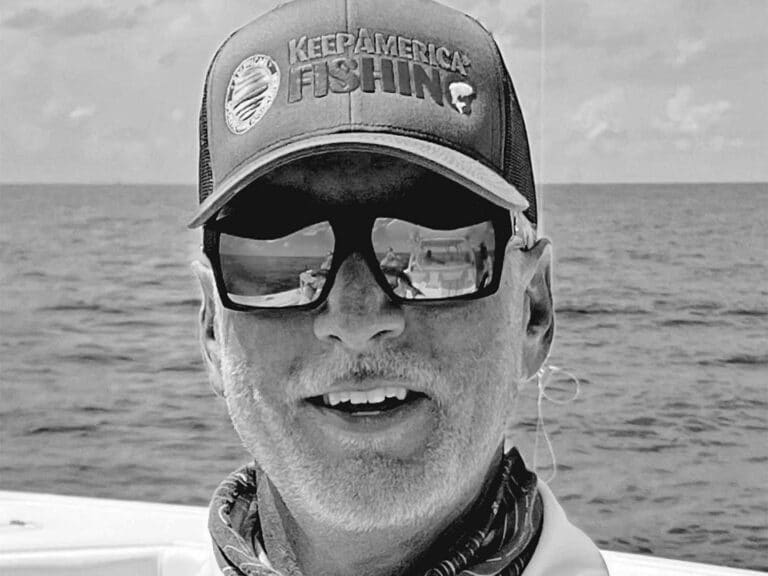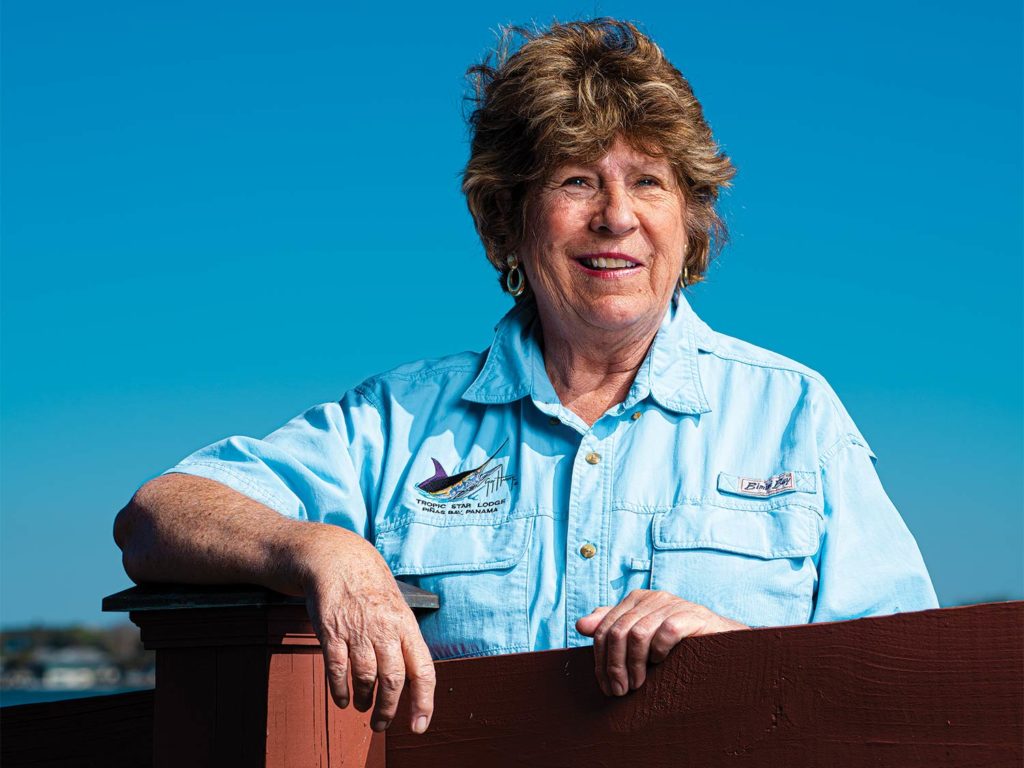
In 1976, Conway Kittredge purchased an earthquake-ravaged fishing lodge called Tropic Star, located on the Pacific edge of the Darien rainforest in Panama. He rebuilt the mangled lodge in time for the 1977 fishing season; Kittredge’s daughter, Terri, was 24 years old. Eight years later, she became the general manager, responsible for the guests and a staff of over 100 Spanish-speaking employees, most from the nearby village. In 1991, she married Mike Andrews at the lodge, and the pair transformed Tropic Star into an iconic world-class fishing destination. Four years ago, ownership of the lodge transitioned once again, this time to a wealthy Panamanian who is dedicated to maintaining the lodge’s ultra-high standards. Mike has since retired, but Terri remains the worldwide ambassador for Tropic Star.
Q: What are some of the challenges associated with running one of the world’s top fishing resorts for the past 35-plus years?
A: There are no roads for 100 miles in any direction, so all of the equipment, supplies and groceries have to come by airplane or boat. Early on, my dad had his Lake Amphibian airplane brought down and would personally deliver building supplies from Panama City so we could open in time for the 1977 season. In 1994, working jointly with the government and the US Army Corps of Engineers, we completed a runway in Piñas village that gave us year-round access; before that, the only way in was by using a runway at Jaque, which we accessed by boat, navigating a dangerous sandbar at the rivermouth. My husband, Mike, revamped everything, bringing the lodge from 1960s to the modern age. He rebuilt the boats as well, including designing the tuna tubes and livewell systems.
Q: Who else made Tropic Star the destination it’s become today?
A: It literally takes a village. In the beginning I was working for a manager who, unbeknownst to me, was corrupt. He was not just stealing from the company but from our employees, so I became the de facto manager in 1985. The employees trusted me, and although I didn’t speak Spanish, we managed to communicate. The captains and mates are indispensable—they’re a big reason people come here to fish. Raleigh Werking was a knight in shining armor—he was a guest who put together a marketing plan after the Manuel Noriega episode. Thanks to him, all the outdoors writers and television fishing personalities started doing stories that put Tropic Star on everyone’s must-fish lists. Then there was Capt. Skip Smith and Jerry Dunaway, who talked me into allowing them and their guests to fish. That was the start of us selling fuel to visiting fishermen as part of our private yacht membership program. Each person brought something special to the table and helped us to be successful over the years.
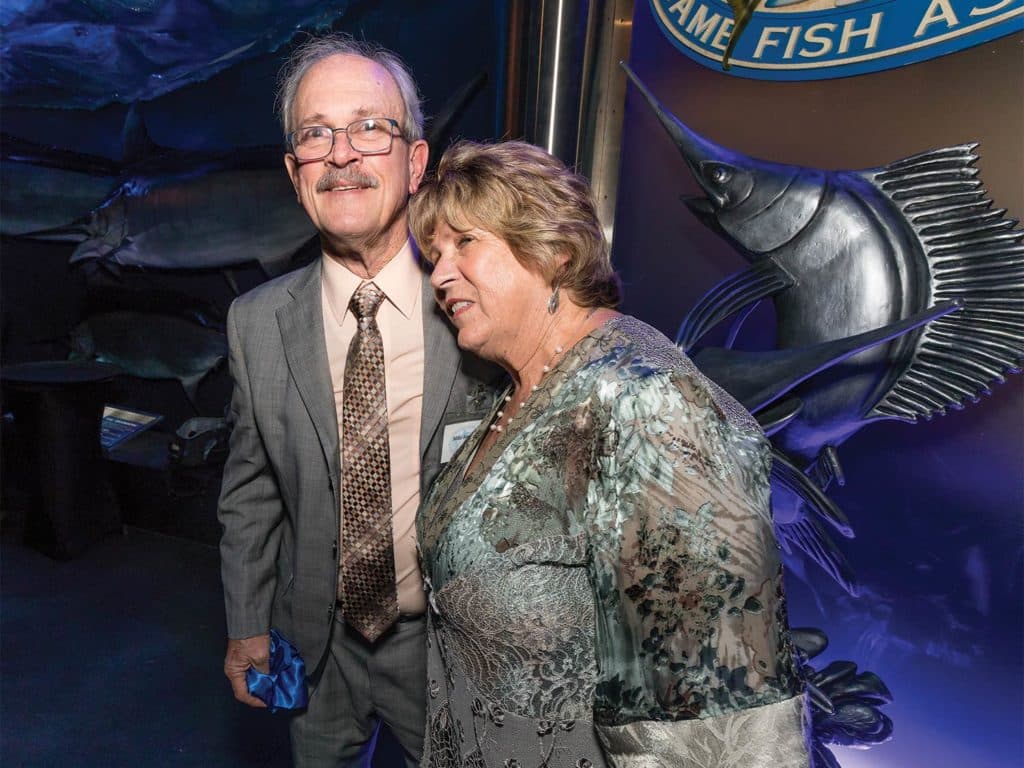
Q: How did the Noriega incident affect you?
A: General Noriega was a dictator who rose to power in Panama, but by the late ’80s, relations between Noriega and the US government had frayed. When the US imposed severe sanctions on Panama in 1988, the Noriega-led anti-US demonstrations began. Even though the problems were confined to Panama City, people were afraid to come down to fish. In 1989, President George H.W. Bush restored order and arrested Noriega. That’s why
I mentioned President Bush at my acceptance speech [at the IGFA Hall of Fame induction]; he not only saved Panama, but our business as well.
Watch: Learn to make a bonito strip teaser here.
Q: More than 300 world records have been set at Piñas Bay, nine of them by you. When did your record quest begin?
A: It started with me wanting to learn why people pay all this money to fish here! Larry Furman first introduced me to light-tackle fishing, and Marc Giraud and Jean-Paul Richard taught me how to catch fish on ultra-light tackle. Larry, who caught his 16-pound-record 399-pound black marlin here, started me out on 20-, then 16- and eventually 12-pound-test. I caught a black marlin on 16-pound-test line, a 364-pound fish that was a world record until it was beaten by Deborah Dunaway 10 years later off Piñas Bay. By 1985, I’d caught several billfish records, including my 2-pound-test record: a 96-pound, 4-ounce Pacific sailfish.
Q: How did Tropic Star become a leader in marine conservation?
A: In 1983, my father took me on a fishing trip to Australia. Among the many people we met were actor Lee Marvin and conservationists like Tim Choate and captains Peter B. Wright and Laurie Wright, who talked about issues such as longlining and overfishing. I started moving away from catching personal records. Before long, I did away with awarding bonuses to the crews for 10-to-1 and 20-to-1 billfish records, opting instead for a bonus incentive each month to release them. Boy, did that change attitudes. We also followed Tim Choate and Capt. Ron Hamlin’s lead in Guatemala, using circle hooks with bait to reduce mortality. But our toughest challenge was with the longliners. Our offshore fisheries were being targeted by Taiwanese and Korean longline boats, so I was in the fight of my life, and pregnant to boot. With CONAMAR (Conservancy of the Sea, Nature and Marine Species) and a lot of arm-twisting, in 1997 we succeeded in getting a presidential decree passed that protected all billfish caught in Panamanian waters, with the exception of possible world records. The following year, we got a 20-mile protected fishing zone approved for Piñas Bay.
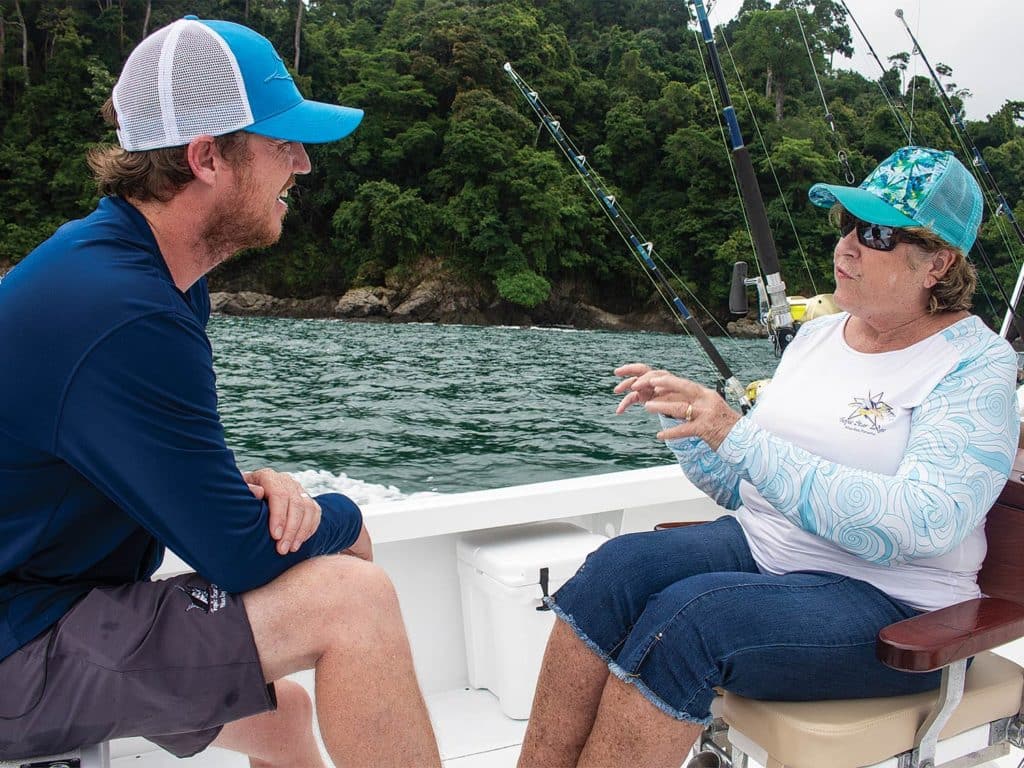
Q: What has your son, Zane, learned growing up at Tropic Star?
A: He was raised at the lodge and was driving the Bertrams from the time he was little. After graduating from Georgia’s Riverside Military Academy in 2012, he got his 100-ton US Coast Guard license, and by 19 he was handling logistics and running our supply ship. He released over 300 marlin in just two seasons on Pollyanna. Lately, he’s been running an 82-foot sport-fisher for Bobby Novey, the Viking dealer in Panama. He’s become a heck of a fisherman and boatman.
Read Next: When (if ever) is it acceptable to kill a marlin? Five pros sound off.
Q: What does the lodge look like today?
A: Nothing has changed that feeling you get when you round the bay, whether it’s your first time or your 100th. In 2020, our new bayside Marlin Bar will debut. Six of our 16 classic 31-foot Bertrams have been repowered with quieter Volvo engines and enclosed interiors with air conditioning. For larger groups, we have a 32-foot Blackfin, a 42-foot Bertram called Terecita and 45-foot Hatteras, Pollyanna, in honor of my mother. We still offer private boat memberships that allow owners and their guests to have privileges such as fuel purchases, provisioning, dinners, accommodations and invitations to fish our tournaments. Our guests tell us they come to Tropic Star for the fishing, but they leave with a greater appreciation of conservation. We try to minimize our footprint—we’ve eliminated plastic bottles and are trying to set good examples for the people here. We are doing our best to enhance the guests’ fishing experience and also the uniqueness of being in the Darien jungle. —Jan Fogt
